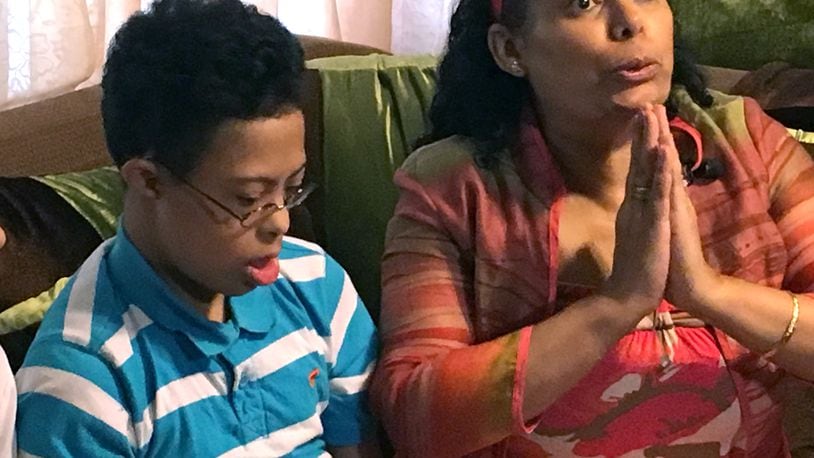As Sami’s primary caregiver, Elgharib gets him up every day at their Englewood home, helps him dress, gets him to school, makes his snacks and gets him to doctor’s appointments for myriad health issues he has.
PRIOR REPORT: Mother, wearing ankle device so ICE can monitor her, awaits certain deportation
“When he comes home from school and walks in the door…if he doesn’t see her when he walks in that door he’s asking, ‘Where’s mom,’” Sara said.
“We’ve just been hinting that my mom is going to visit Morocco but he doesn’t really understand what’s going on,” she said. “I don’t know how to tell him for him to understand.”
Federal agents ordered Elgharib to board a plane in Columbus on Nov. 27. Once she leaves the country, their attorney says she won’t be allowed back for at least 10 years.
I-Team analysis: Deportations dropped in Ohio under Obama; here’s why
While Sami and their sister Wafaa, 18, are citizens because they were born here, Sara is 27 and is in the U.S. on the deferred action for childhood arrivals (DACA) program.
“How long do I have?” Sara posed, noting the uncertain future of DACA recipients.
The family has been under the threat of deportation for years, though the federal government on humanitarian grounds had held off on deporting Elgharib. At one point now-deceased U.S. Sen. George Voinovich intervened on their behalf.
FROM THE ARCHIVE: Children fight to keep their mother in the U.S.
Sara concedes her mother broke the law by over-staying her visa, but says people who steal or commit violent crimes face less harsh penalties.
“We haven’t tried to hurt anybody,” she said.
MORE FROM THIS REPORTER
About the Author
